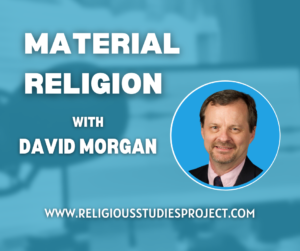
Material Religion
In this episode, Chris Cotter talks to David Morgan about the fast-growing sub-field of material religion.

In this episode, Chris Cotter talks to David Morgan about the fast-growing sub-field of material religion.
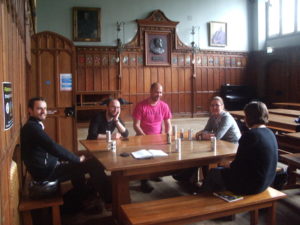
During her recent trip to the UK, the Religious Studies Project managed (with the promise of copious Pink Gin) to persuade Professor Carole Cusack to take part in a roundtable discussion. She suggested that we discuss how to build an academic career – advice which she has been generous with to many people in the past. That having been agreed, …
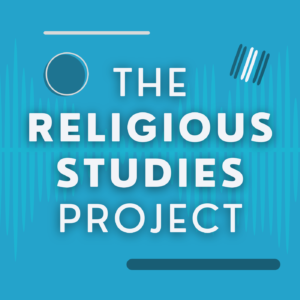
In this, the penultimate Editors’ Pick, David tells us why he chose his interview with Linda Woodhead on the Secularisation thesis as his favourite. The secularisation thesis – the idea that traditional religions are in terminal decline in the industrialised world – was perhaps the central debate in the sociology of religion in the second half of the 20th century.

Week three of our Editors’ Picks. Chris tells us why he (and his fiancée) liked Jay Demerath’s interview on substantive and functionalist definitions of religion. Could the difficulties associated with the academic conceptualisation of “religion” be overcome by changing our focus instead to “the sacred”?

The second of our Editors’ Picks “repodcasts”, and this time Jonathan has chosen our interview with James Cox on the Phenomenology of Religion. It was, incidentally, also our very first podcast, originally broadcast on the 14th of January, 2012. Jonathan also wrote the response to this interview, entitled “What is Phenomenology?“.

In this, the first of four summer break Editor’s Picks “repodcasts”, Louise Connelly reintroduces Chris’s interview with Callum Brown, first broadcast on 30/4/2012. How can we use historical approaches in the study of religion? More specifically, can we use historical approaches to understand why people are losing it? Professor Callum Brown tells us why historical approaches have much to tell us about religious change.

This discussion brings together a number of aspiring academics to reflect on some of the issues brought up in a recent podcast in a friendly and hilarious manner. The question cuts to the core of what academics who study religion are doing… are they taking care of religion? Are they antagonising it? What should they be doing? And judging by the various long tangents through which discussion meanders, the question certainly sparked our interest.
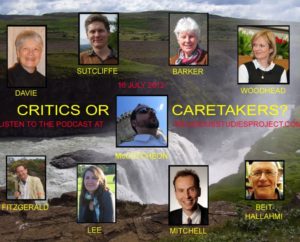
The inspiration for this episode came from one of Russell McCutcheon’s works which we had encountered through the undergraduate Religious Studies programme at the University of Edinburgh, entitled ‘Critics Not Caretakers: Redescribing the Public Study of Religion’. The result is this compilation of differing opinions and interpretations …
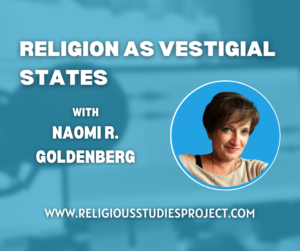
In this episode, Jonathan Tuckett is joined by Naomi R. Goldenberg, who argues that religions are formed in distinction to governmental ‘States’ and represent the last vestiges of the previous order and explores several examples of this as well as considering the implications of this distinction.

Sociological research has followed two broad paradigms – qualitative and quantitative. Qualitative studies seek depth, typically based on interviews and observation with a relatively small pool of subjects. Quantitative studies, on the other hand, survey a larger pool – in some cases, such as the UK National Census, practically the entire population of a country – relying on mass methods such as questionnaires with a limited set of questions and responses.

Images of Jesus on a slice of toast; Koran verses in an aubergine; statues which cry blood; Angel Colour cards and Atlantean crystal therapies; popular religious expressions are everywhere. In this interview, Marion Bowman showcases her fascinating research into the ways in which religion permeates everyday life, paying particular attention to the manifestations at the famous Glastonbury Festival.

“The foundation of irreligious criticism is: Man makes religion, religion does not make man. Religion is indeed the self-consciousness and self-esteem of man who has either not yet won through to himself or has already lost himself again. But man is no abstract being squatting outside the world. Man is the world of man, state, society. This state and this society produce religion, …

‘Belief’ lies at the core of E.B. Tylor’s canonical definition of religion as belief in ‘spiritual beings’. However, in the last decades of the twentieth century the concept became unfashionable in the social sciences, with scholars from all parts of the world denouncing its centrality as a Western, Protestant bias which has limited application to other religions. Ariela Keysar disagrees…

In this interview, Timothy Fitzgerald presents his critical deconstruction of religion as a powerful discourse and its parasitic relation to ‘secular’ categories such as politics and economics. Religion is not a stand-alone category, he argues; ‘religions’ are modern inventions which are made to appear ubiquitous and, by being removed to a marginal, …
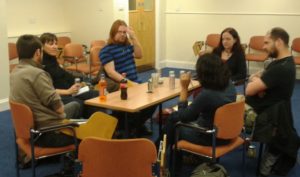
Ninian Smart was a proponent of the idea that Religious Studies should be “poly-methodical”; but should Religious Studies as a discipline incorporate theories and methodologies from multiple other disciplines, such as sociology, anthropology or history? When RS departments have run on an interdisciplinary basis, have they been successful?
This work is licensed under a Creative Commons Attribution- NonCommercial- NoDerivs 3.0 Unported License.
The views expressed in podcasts, features and responses are the views of the individual contributors, and do not necessarily reflect the views of The Religious Studies Project or our sponsors. The Religious Studies Project is produced by the Religious Studies Project Association (SCIO), a Scottish Charitable Incorporated Organisation (charity number SC047750).